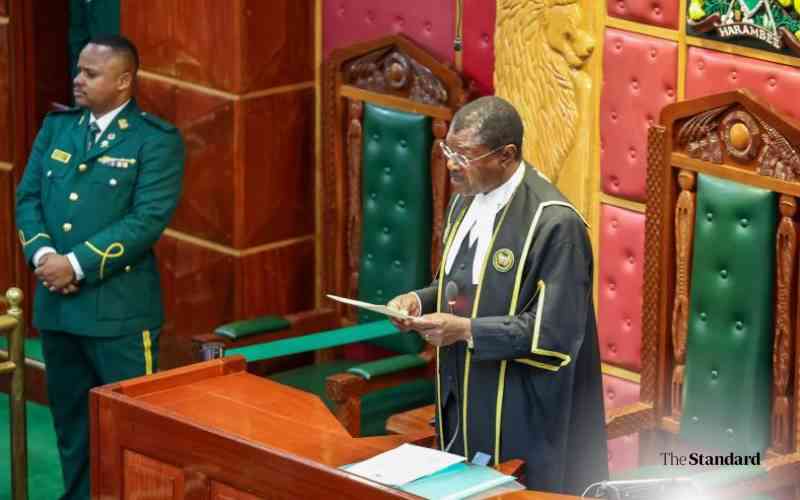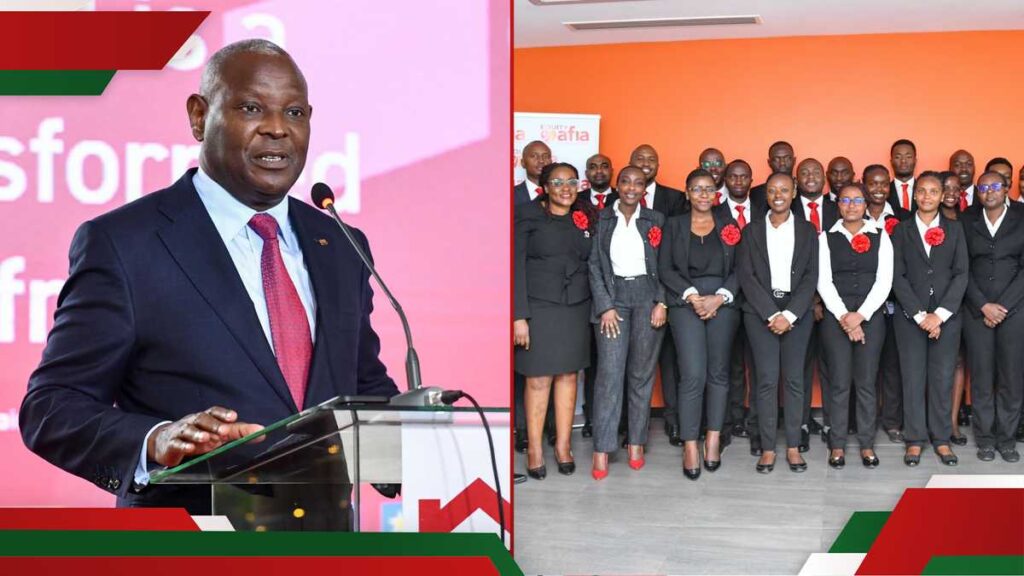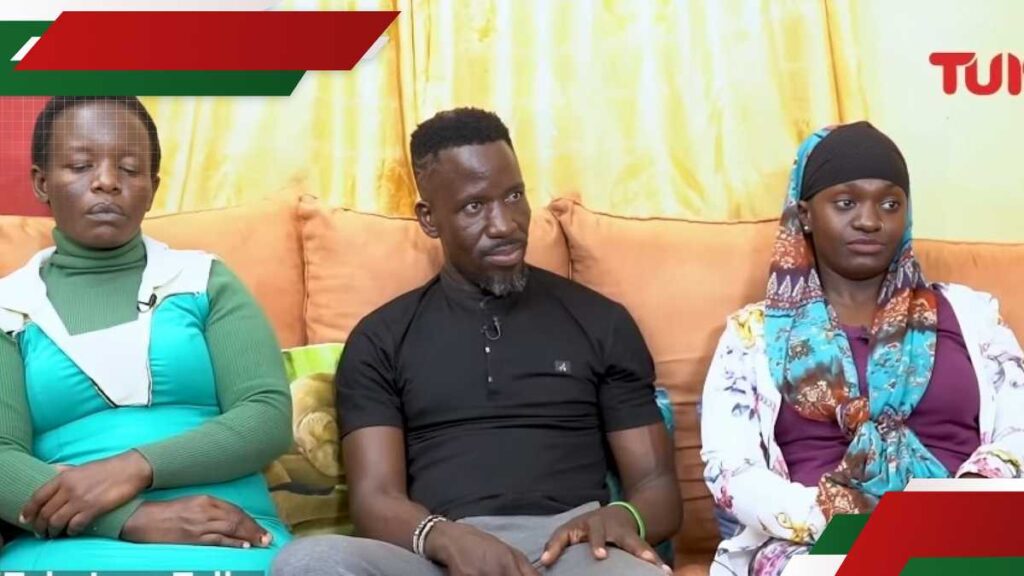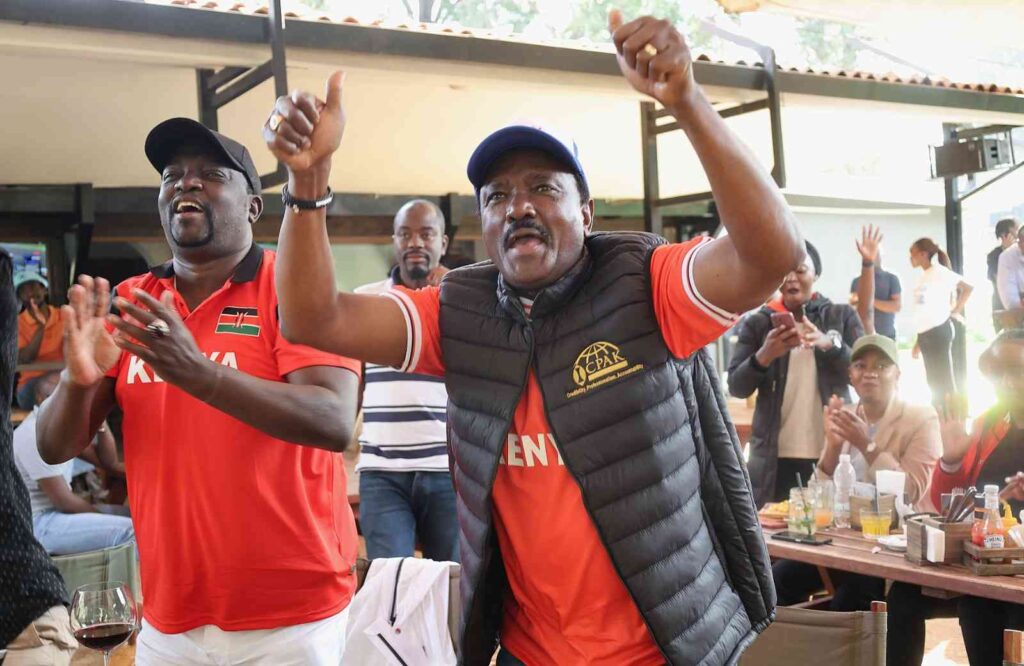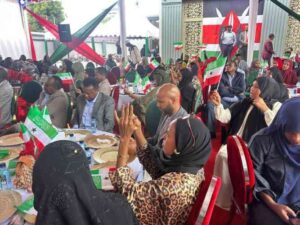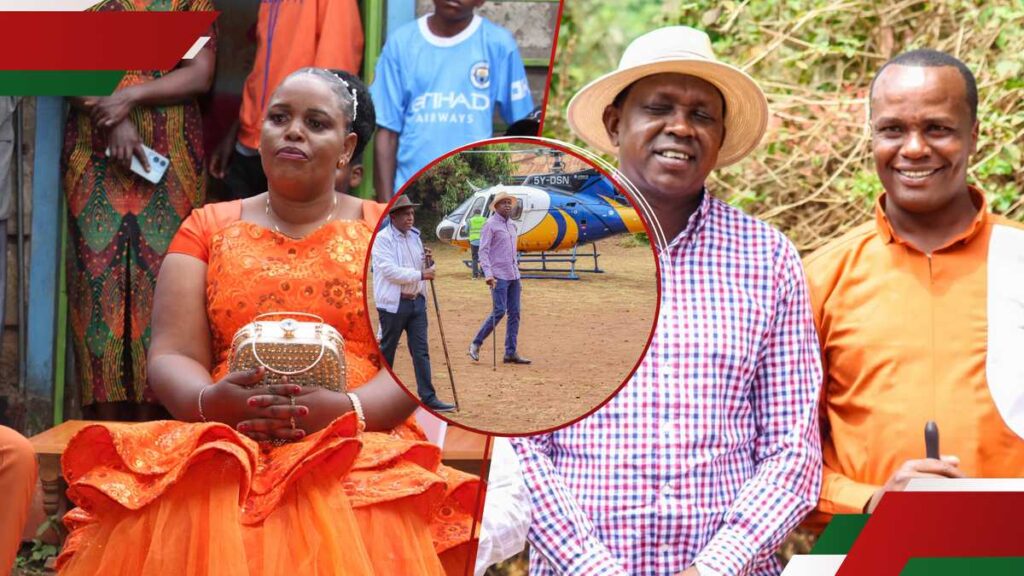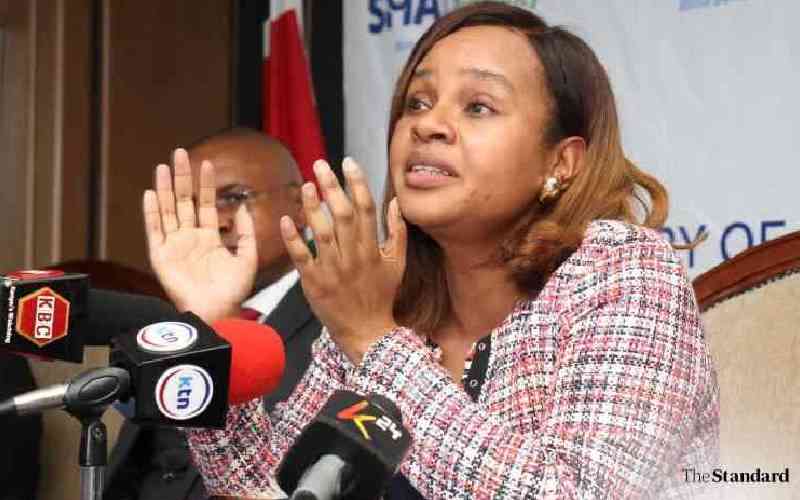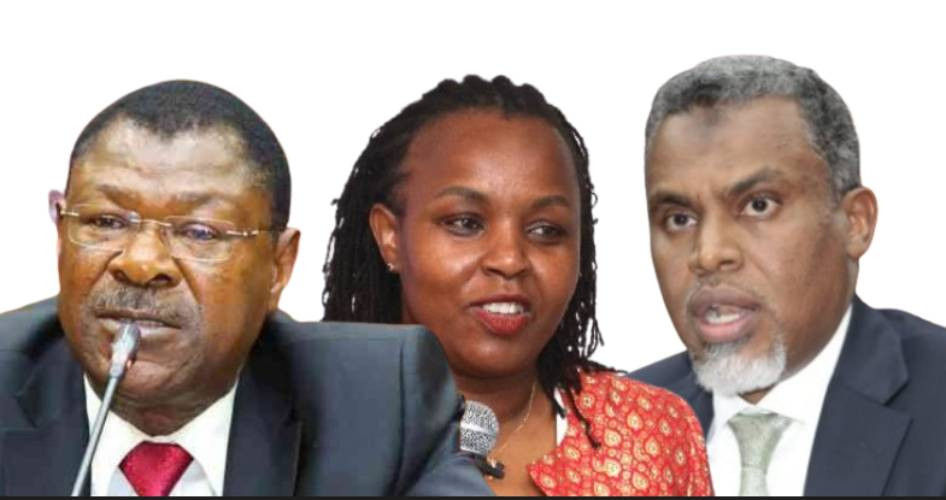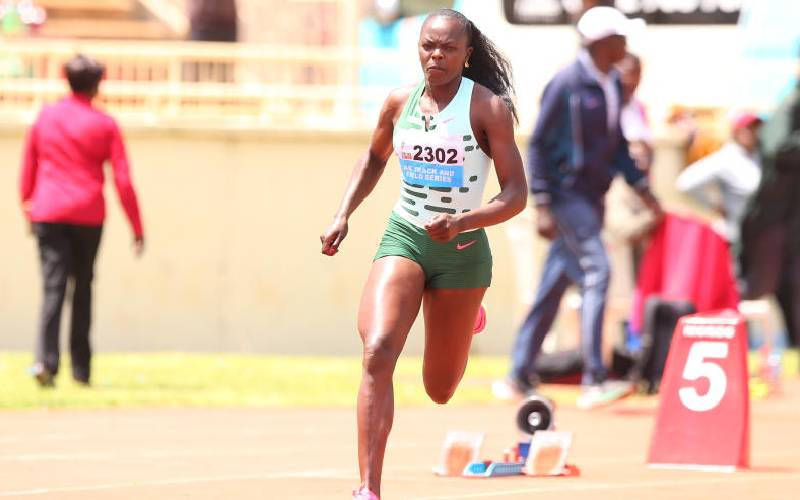Vetting of Independent Electoral and Boundaries Commission (IEBC) nominees will finally commence after days of uncertainty, with the Justice and Legal Affairs Committee (JLAC) now directed to proceed with the process.
Speaker of the National Assembly, Moses Wetang’ula, directed JLAC to proceed with speed and vet the IEBC nominees, which include Chairpersons and Members, and lamented the courts’ interference with Parliament’s responsibilities.
He said that no one has the authority to injunct Parliament from executing its mandate.
“I wish to inform the House that a formal communication is in preparation regarding this matter, to offer clear, precedent-setting guidance. However, for the avoidance of doubt, let it be underscored, nobody under any law or constitutional provision has the authority to bar or injunct Parliament from executing its mandate,” he said during the afternoon session.
He said Parliament is a constitutionally established institution, with the authority to discharge its constitutional functions.
“In that regard, I hereby direct JLAC to proceed with urgency and conduct the vetting of the nominees for the positions of Chairperson and Commissioners of the IEBC. The committee should submit its report to this House without delay,” he directed.
Once a matter is seized by Parliament whether under consideration in a committee or the plenary committee proceedings, Wetang’ula said they are deemed a mirror of the plenary and in both cases, the deliberations carry equal weight and legal standing.
“For the record, I have requested the Honourable Chief Justice Martha Koome to convene a colloquium with Members of Parliament, including myself, so that we may engage constructively, rather than appearing to talk past each other as separate arms of government. We must acknowledge that we need one another in service to the Republic,” he stated.
He said Parliament firmly discourages and will not condone any institutional overreach by one arm of government into the domain of another, particularly on matters where the law, the Constitution, and moral reasoning are abundantly clear.
“Any party aggrieved by this process whether within the Judiciary, the Executive, or among the general public, retains the right to seek redress through the courts, after Parliament has completed its official business,” he said.
He added, “That is the lawful, constitutional, and proper course of action. To this end, I shall issue a formal and precedent-setting communication next week to further clarify this matter and provide guidance for future engagements.”
The Speaker issued the directive after Minority Leader Junet Mohamed raised questions on the interference of the House in conducting its business, which is well provided in law.
“Mr. Speaker, I rise to bring to your attention a matter of great significance to this House a matter that goes to the very heart of how this Parliament functions. Earlier today (Thursday), a ruling was made concerning a matter that is currently pending before JLAC,” he said.
Stay informed. Subscribe to our newsletter
Junet said that the National Assembly is guided by rules, traditions, and precedents, adding that the House is not only made of procedure but also such principles have been upheld by Wetang’ula’s predecessors over time.
He insisted it is a well-established precedent that once a matter has been committed to a committee of the House by the Speaker, that committee becomes an extension of the plenary.
Junet added that the Judiciary is expected to allow Parliament to conclude its work before any litigation can be entertained, insisting that this has been the tradition, and it has served this democracy well.
“Therefore, it is unconstitutional to inject or rather, to injunction Parliament from performing its mandate. Articles 95 and 96 of the Constitution are clear about the legislative authority of Parliament. Just as we, in this House, cannot legislate on a matter that is actively before the courts, the courts must also afford us the same respect by allowing us to finish our business,” he said.
Going forward, Junet said Parliament cannot and will not be constrained from executing its constitutional roles.
“Let it be known: once a bill is introduced and goes through the First Reading and is committed to a committee, any party with reservations must wait. They must wait for the bill to undergo Second Reading, Third Reading, and be assented to. Only then can one challenge its constitutionality in court, whether it’s the entire bill, a section, or a specific clause,” he noted
Should Parliament be injuncted midway, he said it renders this institution unworkable, even as he lauded the court for lifting the injunction yesterday.
“As the Minority Leader, I wish to put this House and the nation on notice: Parliament will not be paralyzed. We are prepared, even if necessary, to sit tomorrow to complete our vetting and other legislative business. “After that, let those aggrieved seek redress in court. But we must do our work first,” he insisted.
The High Court yesterday cleared the way for the National Assembly to proceed with the vetting and approval of nominees to the IEBC.
In his ruling earlier, High Court Judge Justice Lawrence Mugambi lifted an earlier order in which he had barred the National Assembly from proceeding with the vetting of the nominees to the post of IEBC Chairperson and six others for the position of Commissioners.
The Judge, however, gave an order barring the gazettement or swearing in of the nominees if they are approved by the National Assembly, pending the conclusion of the present Petition, filed by Kelvin Roy Omondi and Boniface Mwangi.
Questions have been raised over the delay in constituting IEBC, and now it is a race against time, a lot of pending work and many deadlines missed.
The election cycle is underway and major processes are expected to be undertaken, from the appointment of IEBC Commissioners to boundaries delimitation, which is already time-barred, to preparing for the 2027 election among other huge roles.
IEBC has been without commissioners since the exit of chairman, the late Wafula Chebukati and commissioners Boya Molu and Abdi Guliye, whose tenures ended in January 2023, while others either resigned or were dismissed.
International Commission for Jurists-Kenya (ICJ) Programmes Officer, Thuku Mburu said that IEBC plays a significant role in terms of representation and already there are areas that people are not represented, which means they are disenfranchised.
“Article 1 of the Constitution provides that people can exercise their social power directly or indirectly. At the moment, we are practicing that indirectly through our elected representatives. For areas not represented, it means they are not exercising their sovereign power as outlined in the Constitution. So, there is business in parliaments, in county assemblies, that is being presided over without the voice of these people,” Mburu explained.
Similarly, he said there are timelines that needed to be observed for the delimitation of boundaries but since there has not been a Commission to preside over that function, it means Kenyans are living in ‘unconstitutional moments’.
“When it comes to boundary delimitation, it means certain things like allocation of resources. There are areas where they are so populated and given the quotas they receive as allocation from the government, it does not match the populations of those areas. So, delimitation was to come and try and iron out some of these things but that has not yet happened. It also means some people are underrepresented,” Mburu explained.
At the same time, he said the issue of election management needs to be taken seriously and especially when it comes to the recruitment of Commissioners, which he proposed should be done in a staggered way.
If the staggered system is to be well implemented, he said there would never arise a situation whereby there are vacancies, to avoid the current situation recurring in the future.
“We currently do not have a staggered process. It means we recruit at the same time, their tenure ends at the same time, they all leave and then the house is vacant and we need room now for politicians to start discussing the future of elections in Kenya again like we are seeing right now,” he explained.








